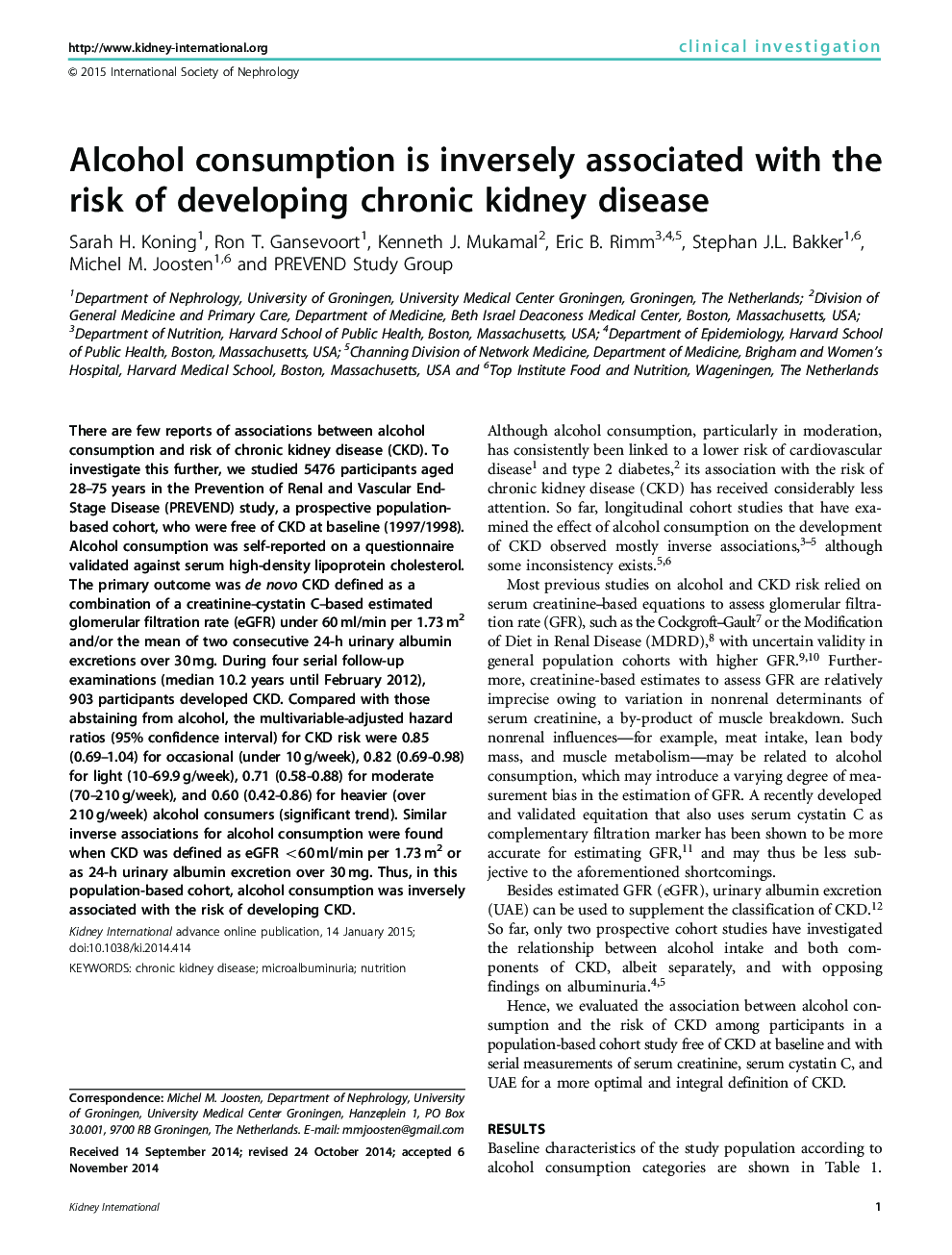| Article ID | Journal | Published Year | Pages | File Type |
|---|---|---|---|---|
| 6161792 | Kidney International | 2015 | 8 Pages |
Abstract
There are few reports of associations between alcohol consumption and risk of chronic kidney disease (CKD). To investigate this further, we studied 5476 participants aged 28-75 years in the Prevention of Renal and Vascular End-Stage Disease (PREVEND) study, a prospective population-based cohort, who were free of CKD at baseline (1997/1998). Alcohol consumption was self-reported on a questionnaire validated against serum high-density lipoprotein cholesterol. The primary outcome was de novo CKD defined as a combination of a creatinine-cystatin C-based estimated glomerular filtration rate (eGFR) under 60âml/min per 1.73âm2 and/or the mean of two consecutive 24-h urinary albumin excretions over 30âmg. During four serial follow-up examinations (median 10.2 years until February 2012), 903 participants developed CKD. Compared with those abstaining from alcohol, the multivariable-adjusted hazard ratios (95% confidence interval) for CKD risk were 0.85 (0.69-1.04) for occasional (under 10âg/week), 0.82 (0.69-0.98) for light (10-69.9âg/week), 0.71 (0.58-0.88) for moderate (70-210âg/week), and 0.60 (0.42-0.86) for heavier (over 210âg/week) alcohol consumers (significant trend). Similar inverse associations for alcohol consumption were found when CKD was defined as eGFR <60âml/min per 1.73âm2 or as 24-h urinary albumin excretion over 30âmg. Thus, in this population-based cohort, alcohol consumption was inversely associated with the risk of developing CKD.
Related Topics
Health Sciences
Medicine and Dentistry
Nephrology
Authors
Sarah H. Koning, Ron T. Gansevoort, Kenneth J. Mukamal, Eric B. Rimm, Stephan J.L. Bakker, Michel M. Joosten,
